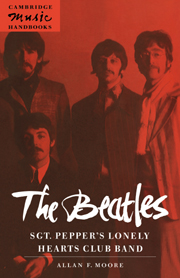Inheritance
Published online by Cambridge University Press: 25 November 2009
Summary
In Europe, there has always been a popular culture: at least, that is, as long as there has been any other sort of culture (high, art, serious, aristocratic, sacred, etc.) from which to differentiate it. However, developments which can be dated to the nineteenth century totally changed the face of what we now experience as popular music. The music written by composers of Mozart's time differs remarkably little in style and tone in respect of its intended audience. By the time of the ‘serious’ piano waltzes of Chopin and Brahms, or that of Berlioz in the Symphonie Fantastique, a gap has clearly opened up in comparison with the waltzes of composers like Joseph Lanner, although concert programmes retained a mixture. By the turn of the present century this gap had become so large that the common origin of a century before could be totally overlooked. This situation would present no problem in itself, were it not for the fact that these now separating musical cultures were increasingly seen as oppositional to each other; hence the (unsuccessful) striving for an adequate term (‘art’, ‘serious’, ‘classical’) with which to oppose ‘popular’. But such opposition is itself complicated by the fact that there is not a ‘popular’ music. Even simply put, by the time of Schoenberg's Pierrot Lunaire, we need to acknowledge certainly three rather than two cultural streams.
The first of these is ‘popular culture’, which scholars have interpreted in two different ways: either a culture dependent on an urban ‘audience’ (out of its historical roots in a folk ‘community’), where the originators of an artefact (in our case, composers of a song or dance) are considered of secondary importance to its executors (its singers and players); or practices which resist the cultural hegemony either of high culture, or of mass culture.
- Type
- Chapter
- Information
- Publisher: Cambridge University PressPrint publication year: 1997



